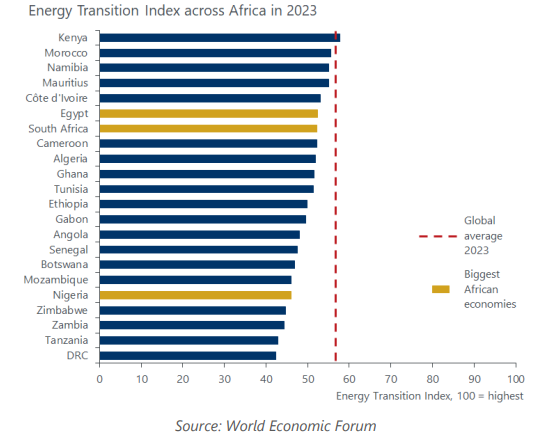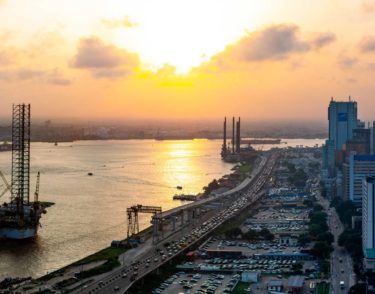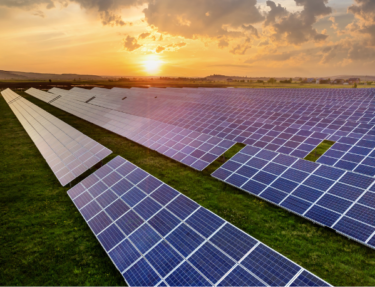It’s time to address the elephant in Africa ‒ transitioning to renewables won’t be easy
We have identified five key challenges Africa faces in transitioning to renewable energy at the scale needed to combat climate change and meet the continent’s climate commitments. Perhaps the central challenge is the prevailing socio-economic conditions on the continent, which offer little wiggle room for governments to divert fiscal revenue to sustainability-related initiatives. With most African economies being relatively undiversified and many reliant on fossil fuel exports, the global transition to sustainable practices threatens economic losses if not mitigated ‒ emphasising the need to diversify economic activity. Nonetheless, the ability of African nations to transition to renewables, in addition to the progress made thus far, is inherently skewed.
What you will learn:
- Africa boasts some of the world’s best renewable energy resources. According to the International Energy Agency, Africa has 60% of the best solar resources in the world; however, only 1% of installed solar PV capacity is located on the continent. Similarly, Africa’s wind power potential per year has been estimated at 180,000 terawatt-hours. Measured differently, the continent can satisfy its electricity demand 250 times over through wind power alone.
- Measured against its potential, Africa’s renewable energy resources remain relatively untapped across much of the continent. Although a few countries generate all or nearly all of their electricity needs through renewables, much of the continent still relies extensively on fossil fuels to fulfil its energy needs. Despite its abundance of both fossil fuels and renewable energy sources, much of the continent is also without access to electricity.
- Although the need to deploy renewables is difficult to argue with, Africa remains in the stranglehold of fossil fuels. These are still in great demand across the world despite the COP28 agreement ushering in the end of fossil fuels, and the continent is likely to continue reaping the rewards of its stockpiles for the foreseeable future.

Tags:
Related Posts

Post
Energy Transitions in Western and Central Africa: A focus on Nigeria, Ghana, Senegal, Equatorial Guinea and Mauritania
The global energy transition involves the sustained displacement of fossil fuels by renewable energy and complementary technologies to reduce carbon intensity. It is, however, imperative to consider such shifts within the distinct developmental contexts of countries to ensure energy transitions are socially inclusive and just. This latest report by our Africa consulting team examines how energy transitions are likely to unfold in Nigeria, Ghana, Senegal, Equatorial Guinea, and Mauritania.
Find Out More
Post
A perspective on just energy transitions in Africa
One of the key expected outcomes from the upcoming COP27 summit in Egypt is for earnest action to be taken by global climate leaders to close the enormous funding gap that is restraining the ability of African countries to transition to low-carbon economies. In doing so, it is pivotal for decision makers and investors to appreciate the continent's role in climate change and the distinct dissimilarities between countries.
Find Out More
Post
COP28 – Incremental but not transformative
Unsurprisingly, the COP28 international climate conference did not end with a dramatic shift in the world's response to climate change. However, it did mark the beginning of the end for fossil fuels as the main energy source in the global economy.
Find Out More